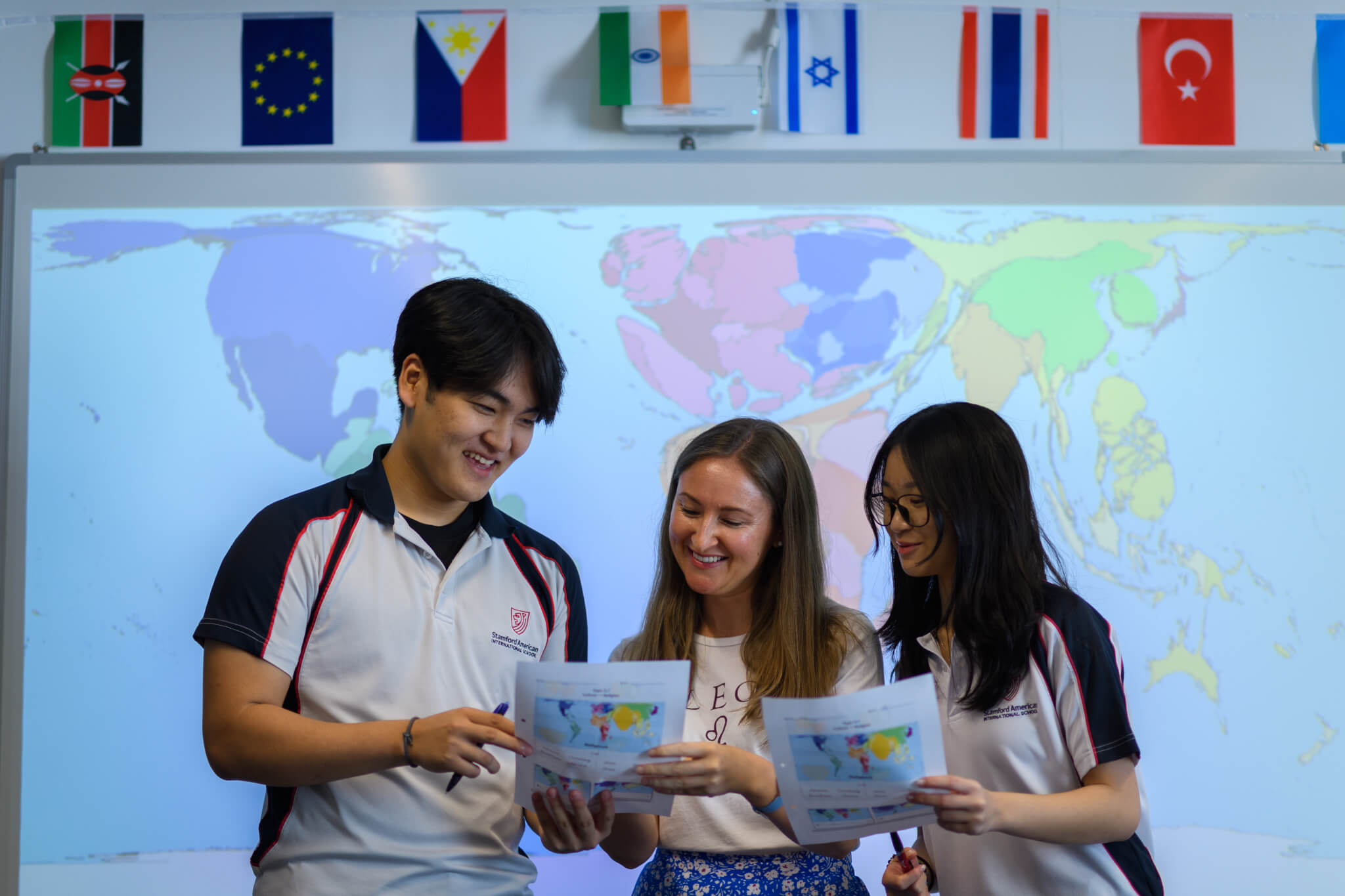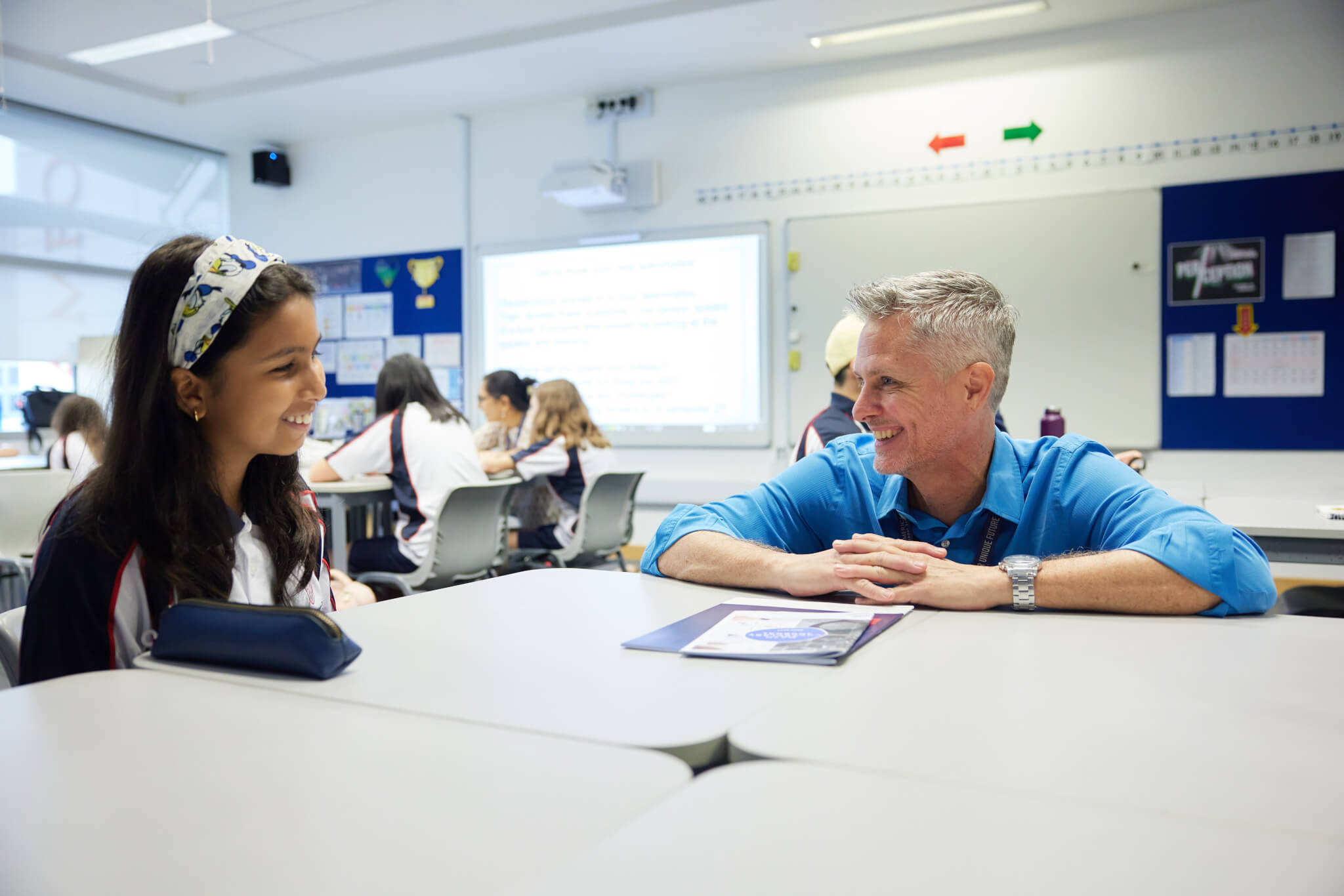
The International Baccalaureate (IB) Programme is a globally recognized educational framework that aims to produce well-rounded, inquisitive, and knowledgeable students. Established in 1968, the IB offers a comprehensive curriculum designed to cultivate critical thinking, intercultural understanding, and a lifelong love of learning. With programmes catering to students aged 3 to 19, the IB Programme provides a comprehensive educational experience that nurtures not only academic excellence but also the development of the student’s character and global perspective.
The IB Programme is particularly advantageous for families who travel extensively for work or education, as its curriculum is transferrable and implemented consistently across IB schools worldwide. In Singapore, schools offering the International Baccalaureate are renowned for their high educational standards. Consequently, these institutions are an ideal choice for expatriate families residing in Singapore or those contemplating a move to the city-state.
If you’re an internationally-minded parent seeking the ideal school for your child, or a young learner exploring your educational options, the IB Programme offers compelling reasons to consider it. This feature provides a comprehensive overview of the programme, highlighting its key attributes, potential benefits, and other essential details to help you make an informed decision about your educational journey.
Overview of the IB Programme
The IB Programme is structured into four distinct parts, each tailored to specific age groups:
![IMG_9038[1]](https://www.sais.edu.sg/wp-content/uploads/sites/28/2023/11/IMG_90381-e1700123857537.jpg)
Primary Years Programme (PYP)
Designed for children aged 3 to 12, the PYP focuses on nurturing the whole child both in the classroom and in the world outside. It encourages young learners to be curious and enthusiastic about their education. Through a transdisciplinary framework, the PYP nurtures academic, social, and emotional well-being and encourages students to develop the skills they need for lifelong learning.

Middle Years Programme (MYP)
The MYP caters to students aged 11 to 16 and offers a challenging framework that encourages them to make practical connections between what they study in the classroom and the real world. It aims to develop critical thinking and reflective learning. The MYP includes eight subject groups and provides a broad and balanced education for early adolescents, preparing them for the more demanding nature of higher-level academic study.

Diploma Programme (DP)
The DP is a challenging two-year curriculum leading to final examinations and a qualification that is recognized by universities worldwide. It is aimed at students aged 16 to 19. The DP curriculum is made up of six subject groups and the DP core: Theory of Knowledge (TOK), Creativity, Activity, Service (CAS), and the Extended Essay (EE). The program focuses on helping students develop their thinking, emotions, and social skills while providing a rigorous but balanced education.
Career-Related Programme (CP)
Also for students aged 16 to 19, the CP integrates the values of the IB into a unique programme addressing the needs of students engaged in career-related education. It combines academic courses from the DP with career-related studies and hands-on experience. It thus equips students with both the academic and the practical skills they need for success in their chosen careers.

Key Features of the IB Programme
The IB Programme distinguishes itself from other educational frameworks through several key features that together foster a well-rounded learning experience. These elements go beyond mere academic preparation, equipping students with the skills and mindset needed to succeed in an increasingly globalized world.
Holistic Education
The IB Programme emphasizes the development of the whole student. This includes intellectual, personal, emotional, and social growth. By encouraging students to engage with diverse perspectives and develop a well-rounded skill set, the IB fosters balanced individuals who are well-prepared to navigate complex global challenges.
Interdisciplinary Learning
Under the IB Programme, students learn to make connections between different subjects and apply their knowledge in practical, real-world contexts. This approach promotes critical thinking and problem-solving skills, which, in turn, help students understand and tackle multifaceted issues.
Global Awareness
Students explore global issues and cultures extensively throughout their time in the IB Programme. In the process, they come to appreciate diversity and commit to being more international-minded. This global perspective prepares them to become responsible and empathetic global citizens.
Development of Critical Thinking and Research Skills
The IB Programme emphasizes inquiry-based learning. It encourages students to ask questions, conduct research, and develop their critical thinking abilities. Components like the Extended Essay and Theory of Knowledge require students to engage in deep analysis and reflection to hone their research and analytical skills.
Community Service
Through the Creativity, Activity, Service (CAS) requirement, students participate in projects that benefit their communities and beyond. Their involvement in these initiatives helps them to develop empathy, leadership skills, and a sense of responsibility towards others.
The IB Learner Profile
The IB Programme aspires to develop students into well-rounded individuals who embody the following ten attributes, encapsulated in the IB Learner Profile.
- Inquirers – Cultivate curiosity and develop skills for inquiry and research.
- Knowledgeable – Explore concepts, ideas, and issues with depth and breadth.
- Thinkers – Apply critical and creative thinking skills to complex problems.
- Communicators – Express ideas confidently in multiple languages and modes.
- Principled – Act with integrity, honesty, and a strong sense of fairness.
- Open-minded – Appreciate and respect different perspectives and cultures.
- Caring – Show empathy, compassion, and respect. Commit to service.
- Risk-takers – Approach uncertainty with forethought and determination.
- Balanced – Understand the importance of intellectual, physical, and emotional balance.
- Reflective – Thoughtfully consider the world and their own ideas and experiences.
You can think of the ideal IB learner as someone with a broad and diverse range of human capacities. Throughout their time in the programme, they mature into someone capable of taking on responsibilities that extend beyond academic achievements, preparing them for success in various aspects of life.
Benefits of the IB Programme
The IB Programme provides a wealth of benefits that contribute to both academic and personal success. Here are some key advantages discussed in detail:
University Recognition
Universities worldwide look favorably on students that hold the IB Diploma. Many institutions offer advanced standing or credits to IB graduates, and this can make the transition to higher education smoother. The rigorous and comprehensive nature of the IB curriculum also prepares students for the demands of university coursework. As a result, many IB graduates enjoy a competitive edge in the admissions process.
Academic Rigor
The IB’s challenging curriculum develops strong academic skills, including research, writing, and critical thinking. The programme’s emphasis on inquiry-based learning and independent study produces students that excel at managing complex tasks and projects.
Skills Development
The IB Programme emphasizes the development of essential skills such as time management, organization, and independent learning. Students become more disciplined and responsible as they learn to balance various academic and extracurricular commitments effectively. These skills are invaluable not only for academic success but also for professional achievements in any career path.
Preparation for Lifelong Learning
The IB Programme instills a love of learning and encourages students to be curious, reflective, and proactive in their education. The emphasis on critical thinking and continuous inquiry nurtures a mindset that values lifelong learning. Students remain adaptable and resilient long after graduation, and they’re well-equipped to navigate the ever-evolving challenges of the modern world.
The IB Programme at Stamford
Stamford American International School in Singapore integrates the IB Programme framework to provide a holistic and globally-minded education. We offer an American curriculum, guided by American Education Reaches Out (AERO) standards, alongside the Primary Years Programme (PYP), Middle Years Programme (MYP), and the Diploma Programme (DP) offered in tandem. This approach ensures our students have a seamless educational experience from early childhood through to high school.
The PYP (offered from Grades 1 – 5) focuses on developing young learners through a transdisciplinary curriculum that emphasizes inquiry-based learning. We encourage students to explore their interests and passions, and we aim to foster a love for learning from an early age.
The MYP (offered from Grades 6-10) builds on this foundation by offering a challenging framework that connects academic studies to real-world applications. Students in the MYP engage in interdisciplinary learning, critical thinking, and reflective practices. The programme aims to develop students who are knowledgeable, principled, and able to understand and navigate complex global issues.
The DP (offered from Grades 11-12) is a rigorous pre-university course that prepares students for higher education and beyond. The full IBDP is one of two educational pathways available to students at our school. The alternative is an individualized pathway where students may take a combination of Advanced Placement (AP) courses, IB courses, Business and Technology Educational Council (BTEC) courses, and Stamford courses..
At Stamford American, we provide robust support systems to help students succeed in these challenging programmes. These include personalized learning plans and college counseling, among others. Stamford’s teachers are also highly qualified and undergo continuous professional development to stay current with IB methodologies and best practices. We’re committed to the professional growth of our staff and actively equip our educators with the knowledge necessary to guide students through their IB journey effectively.
If you need more information about Stamford American, have questions about our curricula and programs, or would like to book a campus tour, please get in touch with our admissions team. Whether you’re a parent or a potential Stamford student, our staff is here to tell you all you need to know.






